Managing multiple credit cards can be overwhelming, but by adopting the right strategies, you can benefit from credit while minimizing risks. Here are ten practical tips to effectively manage your credit cards without falling into debt or making costly mistakes.
Whether you’re juggling rewards programs, promotional interest rates, or simply trying to keep track of payments, these strategies will help you navigate the complexities of credit card management and maintain your financial health.
1. Know Your Credit Limits

The first step in managing multiple credit cards is understanding your credit limits. Each card you own has its own limit, and exceeding that limit can lead to penalties, fees, and negatively impact your credit score.
- List all your credit cards along with their respective credit limits
- Monitor your usage to ensure you stay within these limits
- Consider making notes on your calendar for when your limits reset
By knowing your credit limits, you can avoid overspending and develop a strategy for using your cards effectively. This awareness helps maintain a good credit score, which is essential for future borrowing.
2. Keep Your Balances Low
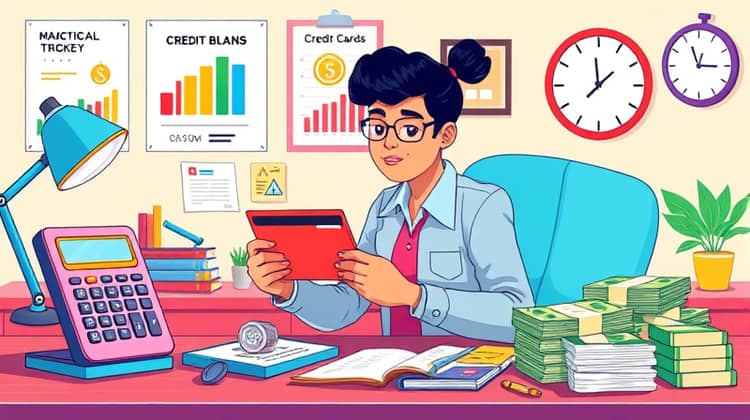
Another critical tip in managing multiple credit cards is to keep your balances low. High balances can lead to increased interest charges and may negatively impact your credit score. Therefore, it's advisable to make it a habit to pay off your card balances as quickly as possible.
Even if you can't pay the full amount, aim to pay more than the minimum due each month. This approach reduces your overall debt and helps you stay on top of your financial obligations.
Moreover, keeping your credit utilization ratio low (ideally under 30%) is beneficial for your credit profile.
3. Pay Off Your Cards in Full Each Month

Paying off your credit card balances in full each month is crucial. This prevents interest from accruing, helping you avoid expensive debt that can spiral out of control.
- Set reminders a few days before your due date
- Use mobile apps to track your spending and payments
- Take advantage of grace periods by paying your balance before the due date
By being diligent about paying your cards in full, you can enjoy the benefits of using credit without the burdens of debt. This practice also helps build a positive credit history, which will serve you well in the future.
4. Understand the Terms and Conditions

When managing multiple credit cards, it's vital to fully understand the terms and conditions that come with each card. Each issuer has unique rules regarding interest rates, late fees, rewards, and payment policies. Familiarizing yourself with these details can save you money and headaches in the long run.
Take the time to read through the fine print when you receive your statements or when applying for new cards. Many consumers overlook these important details, which can lead to costly mistakes. Lastly, remain aware of promotional offers—know when they expire to leverage their maximum benefits.
Being informed allows you to make better decisions about how and when to use your credit cards.
- Check APR (annual percentage rate) of each card
- Note any balance transfer fees or annual fees
- Review the rewards structure and expiration terms
5. Monitor Your Accounts Regularly
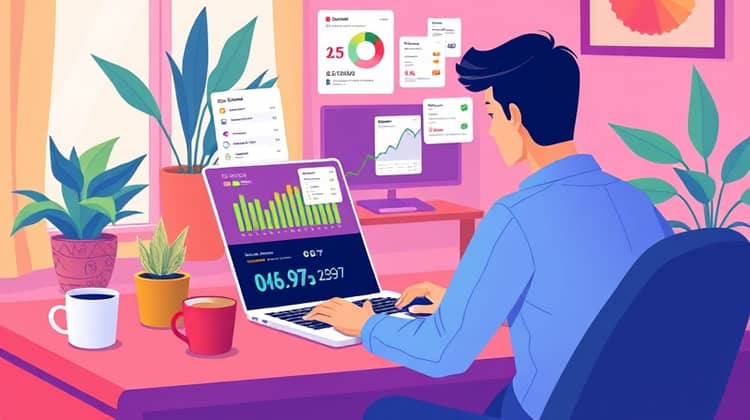
It’s essential to keep an eye on your credit card activity by regularly monitoring your accounts. This practice not only helps you stay within your budget but also assists in detecting any unauthorized purchases or errors in statements.
Set up alerts to notify you of low balances, due dates, and suspicious activities. Many credit card providers offer these services, making it easier than ever to stay informed. Regularly reviewing your statements helps ensure accuracy and prevent potential fraud.
6. Set Up Automatic Payments
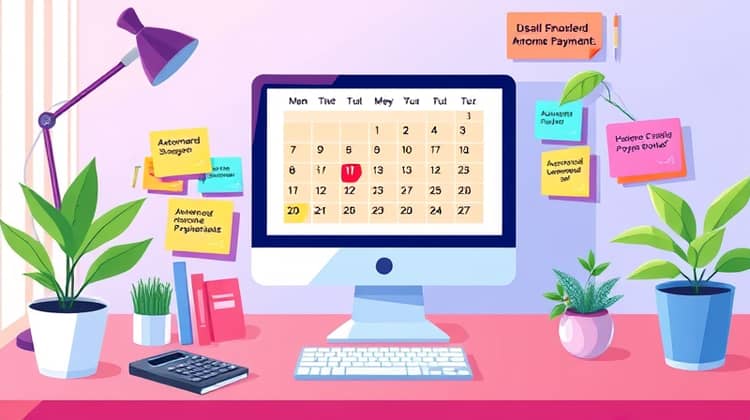
Setting up automatic payments can help ensure that you never miss a due date, which can save you from late fees and damage to your credit score. However, it's important to manage this carefully to avoid overdraft situations.
Decide whether you want to pay the minimum due or the full balance automatically. Many people opt for the minimum to maintain cash flow, but if possible, paying in full is recommended for avoiding interest.
7. Avoid Cash Advances

Using your credit card for cash advances can be tempting but leads to high fees and interest rates. Avoid this practice to maintain better control of your finances and to prevent slipping into deeper debt.
Cash advances often come with immediate interest charges, unlike regular purchases, which may have a grace period. By steering clear of cash advances, you’ll find managing your cards much easier and less costly.
Instead of taking cash advances, consider other options like personal loans or even budgeting through your existing account balance.
8. Be Aware of the Temporary Hold

When using your credit card, be mindful of temporary holds that merchants may place on your card for reservations or purchases. These holds can reduce your available credit, so plan accordingly, particularly during travel or while making large purchases.
Knowing that these holds expire after a short time can help you manage your available credit and avoid surprises when you're at the checkout.
9. Use a Secure Portal for Online Payments
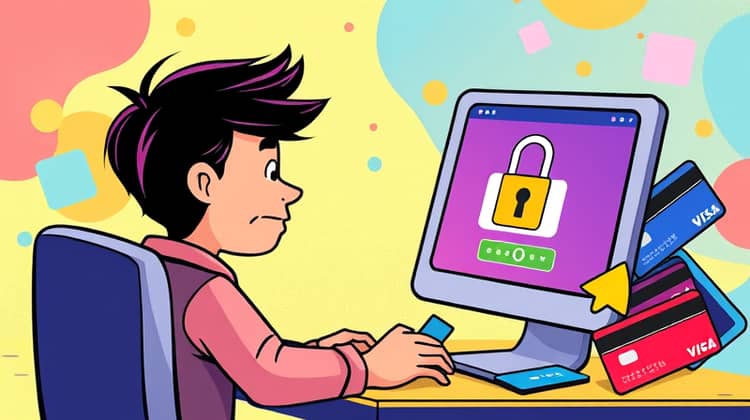
When managing multiple credit cards, ensure that you use secure portals for any online payments. Always look for signs of encryption and verify the authenticity of websites before entering sensitive information.
By being cautious, you help protect your credit card information from fraudsters and keep your financial data secure.
10. Transfer Balances to a Low-Interest Card
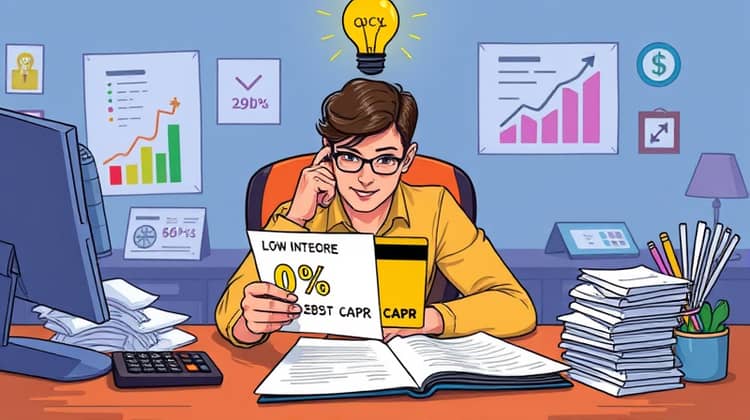
If you find yourself accumulating debt, consider transferring your balances to a low-interest credit card. This allows you to save on interest payments and offers a strategy to pay off debt more effectively.
However, be sure to read the terms and conditions of the new card, including any transfer fees or promotional rates that may apply.
- Look for cards with 0% introductory APR offers
- Calculate potential savings from lower interest rates
- Check for any fees associated with balance transfers
By managing your debt wisely and utilizing balance transfers strategically, you can regain control of your finances and pave the way for financial stability. Seek advice when needed and consistently apply best practices to enhance your overall credit health.
Conclusion

In conclusion, managing multiple credit cards requires careful planning and disciplined financial habits. By applying these tips, you’ll not only streamline your credit management but will also enhance your overall financial wellbeing.
Staying organized and informed will enable you to make the most out of your credit cards, helping you avoid pitfalls and enjoy the benefits associated with responsible credit use.














